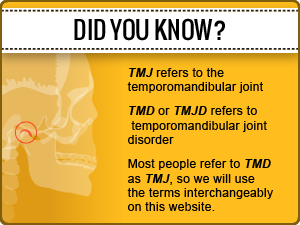Sleep Apnea Effects & Symptoms
Sleep Apnea Effects and Symptoms
 Are you always tired when you wake up, even when you have slept a full eight hours? Do you frequently wake with morning headaches or sore throats? Are other snoring symptoms causing sleepless nights for you and your bed partner? Do you frequently struggle to stay awake during the day? If any of this sounds familiar, you are not alone.
Are you always tired when you wake up, even when you have slept a full eight hours? Do you frequently wake with morning headaches or sore throats? Are other snoring symptoms causing sleepless nights for you and your bed partner? Do you frequently struggle to stay awake during the day? If any of this sounds familiar, you are not alone.
For the millions of Americans who deal with the challenges caused by Sleep Apnea or other sleep disordered breathing symptoms, this is no laughing matter. There are many resulting emotional and physical side effects that are blatantly evident, but there are additional health concerns and social impacts that may affect you as well. Sleep apnea effects are to be taken seriously.
What Happens During Sleep Apnea
When we are awake our airways are taken for granted. They remain open without any effort on our part. When we fall asleep and especially as we enter deeper sleep our muscles begin to relax. In healthy patients with excellent airways this does not present a problem. In patients with small airways due to small mouths, large tongues or disproportionate anatomy this muscle relaxation can lead to airway compromise. The vacumn of breathing can then cause the soft tissues to collapse partially or completely blocking the airway.
The mildest form of sleep disordered breathing is simple snoring. The soft tissues vibrate due to close proximity but sufficient air continues to flow. According to Mayo clinic, research the spouses of snorers can lose up to 15 % of their sleep. Heavy snorers have up to a 600% increase in Carotid Atherosclerosis just from the vibrations of snoring. The carotic artery supplies blood to the brain.
Obstructive Sleep Apnea is where the airway closes completely. The patients oxygen drops, the heart slows (radycardia) followed by awakening and a rapid heartbeat(tachycardia) . In other words, the patient is SUFFOCATING. The Apnea index is how many times an hour this suffocation takes place. it can happen a few times an hour which is mild sleep apnea or it can happen dozens of times an hour. Each event creates an awakening. Patients may hundreds of times in a single night. Because the awakening are very brief (measured by EEG) patients are often not aware that they are waking but they do experience the negative effects the next day.
Common Sleep Apnea Symptoms and their impact
Fatigue
Fatigue is a much stronger word than tired. It is an ongoing, severe physical and mental weariness that has a significant negative impact on your ability to stay alert and function normally throughout the day. Excessive daytime sleepiness occurs when normal function is no longer possible throughout the day.
Cognitive functionality
If you have undiagnosed and untreated sleep apnea, you are not just dealing with a lack of sleep. The repeated occurrences of oxygen being cut off to the brain also impairs your cognitive behavior and functionality. This includes symptoms such as foggy thinking, short-term memory loss and the inability to concentrate. Patients with untreated sleep apnea have slower reaction times and up to a six fold increase in motor vehicle accidents.
Depression and irritability
The vicious cycle of chronic fatigue, sleep deprivation and cognitive impairment often leads to irritability and depression. In addition to the constant struggle of trying to cope with mental and physical exhaustion, there is also the embarrassment and stigma of falling asleep at inappropriate times during the day, most especially when it happens on the job.
Heart problems
The frequent cessation of breathing during a sleep apnea event decreases the oxygen in the blood and causes the nervous system to panic. Emergency signals are sent out to the brain and muscles.
This naturally occurring “fight or flight” response places unusual pressure on the heart and makes it work harder. Continuous occurrences of this increased stress may eventually put sleep apnea patients at greater risk for other heart complications and high blood pressure.
Sexual dysfunction and relationship problems
It may be embarrassing to talk about, but erectile dysfunction is not uncommon among men who also have a sleep disorder. Intimacy is another typical issue, because many couples choose to sleep in separate rooms so at least one of them can get a good night’s sleep. Marital problems also occur due to conflict arising due to excessive tiredness or fatigue.
Problems with staying awake while at work or driving
Because of problems with fatigue and sleep deprivation, sleep apnea sufferers are also at a greater risk of being involved in an accident while driving or operating dangerous machinery.
Performance problems at work
Problems with daytime sleepiness and cognitive impairment make it harder to focus and stay awake, and this often affects both quality and productivity on the job. Many patients with sleeep apnea struggle to stay awake during meetings, miss important information or actually doze off.
Want some good news now?
There are a lot of health and safety risks associated with sleep deprivation caused by sleep apnea and snoring. The good news is these sleep disorders are treatable. The first step is usually a sleep test to determine the root cause of your disorder. The second step is treatment.
In the case of sleep apnea and snoring, there are numerous oral appliances that can be both comfortable and effective treatment. We encourage you to look into solutions for your sleep problems. If you are suffering from the above-noted effects, you have nothing to lose.


0 Comments